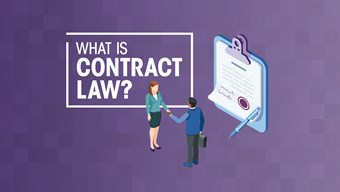Securing a place to study a full-time undergraduate degree with us, or any other university for the September 2024 intake, you’ll need to make an application through UCAS. The deadline for applications with us is 31 January 2024.
Written by Editorial Team. Published 16 December 2022. Last updated 05 January 2024.
Choosing if you want to attend university is a big decision, you’ll have researched carefully which institution and course is best for you by visiting open days, speaking to admissions teams, and checking out websites and prospectuses. It’s also important to check the entry requirements for each course.
What do we look for in an application?
We judge applications principally, but not exclusively, on academic ability. We’ll also evaluate your application using the following admissions criteria:
- Good academic profile and achievement – demonstrated by actual or predicted grades
- Academic references
- Any extenuating circumstances you want taken into consideration
- Your personal statement
Making your application
You’ll need to create an account on the UCAS Hub. Before applying, we recommend you read their detailed guide on how to complete your application as you can only apply once per cycle.
With your login:
- Fill in your personal details
- Choose your university and course
- Residential status
- Disability support requirements
- Your paid employment history (if you have one)
To select The University of Law, you’ll need to add our institution, campus and course codes. These can be found on our apply for a degree page.
Don’t forget to get a reference from your teacher or careers advisor, and this needs to be completed before you submit your application. Make sure to do this in advance so they have enough time to write a personalised reference and so they can avoid sounding rushed and generic.
The UCAS application fee for 2024 entry is £27.50, which includes a maximum of six choices.
Qualifications or predicted grades
It’s important to make sure you’ve added all your qualifications from secondary school onwards, including those you don’t have the results for yet. There are no essential subjects required to study with us, but we don’t accept A-level General Studies.
Personal statements
One of the most important sections in the UCAS application will be a personal statement. Writing one may seem like a mountain to climb, but by staying calm and following a few simple steps it’s easier than you think.
Do
- Note down everything you want to talk about and then you can see if there is any information missing.
- Show confidence and don’t sell yourself short. If you have achievements to mention, then put them down. You aren’t being boastful; you’re presenting yourself to the best of your ability.
- Be original and be yourself. Don’t plagiarise someone else’s work.
- Include your work experience. If you’ve spent some time in a law firm, business or facility that is related to your chosen course, make sure you include that in your application. If your experience is elsewhere, you may be able to demonstrate transferable skills such as an understanding of business, communication or critical thinking.
- Include other achievements that show your commitment and interests. This could include things such as the Duke of Edinburgh Award or even Student Council.
- Show us your enthusiasm for the subject you’ve chosen. Do you keep up-to-date with the latest legal, business or psychology news? You should be clear about why you wish to study the subject and any ways you are already involved with it.
- You’ll need to show us you’re making an informed decision.
- Include information on your hobbies and interests to give us an idea of who you are.
- Allow yourself time. By writing the statement at the last minute you’re putting yourself at a disadvantage.
- Check your statement thoroughly. It shouldn’t contain any spelling mistakes or grammatical errors. If possible, get someone else to check it through. It’s easy to miss errors when you’ve worked on something for a long time and a fresh set of eyes can make all the difference.
Don’t
- Use cliches. How are you going to get an insight into who you are if your application is full of impersonal cliches?
- Tell us your life story. We want to know who you’re right for our course and why our course is right for you, not every detail of your life.
- Lie or exaggerate. The last thing you want is to get caught out, that won’t give us a good impression.
- Repeat information, such as your exam details. This is your chance to tell us the things we don’t already know.
Take a look at our dedicated blog on writing a great personal statement for even more guidance on making your statement shine.
Funding
Your course fees can be paid either directly (self-funded students), or through a student loan (SLC funded students). Student loans can help by providing a Tuition Fee Loan to help with course fees and possibly a Maintenance Loan to help with your living costs. Your application for a Maintenance Loan and the amount you might receive will depend on your household income, where you study, where you live, and how long for.
Learn more about our undergraduate course fees.
We also offer bursaries and scholarships. You can apply for these once you have received an offer for one of our undergraduate courses from us.
Studying with us online
We provide undergraduate online courses in law, business and psychology that you don’t need to apply for through UCAS. You can apply directly with us through the individual course pages.
Good luck and most of all, believe in yourself. Make your UCAS application the best reflection of you and your achievements.
Discover our wide range of undergraduate degrees. If you want to chat to one of our Admissions team they would be happy to help you. You can contact them 0800 289 997 or email them at [email protected].



